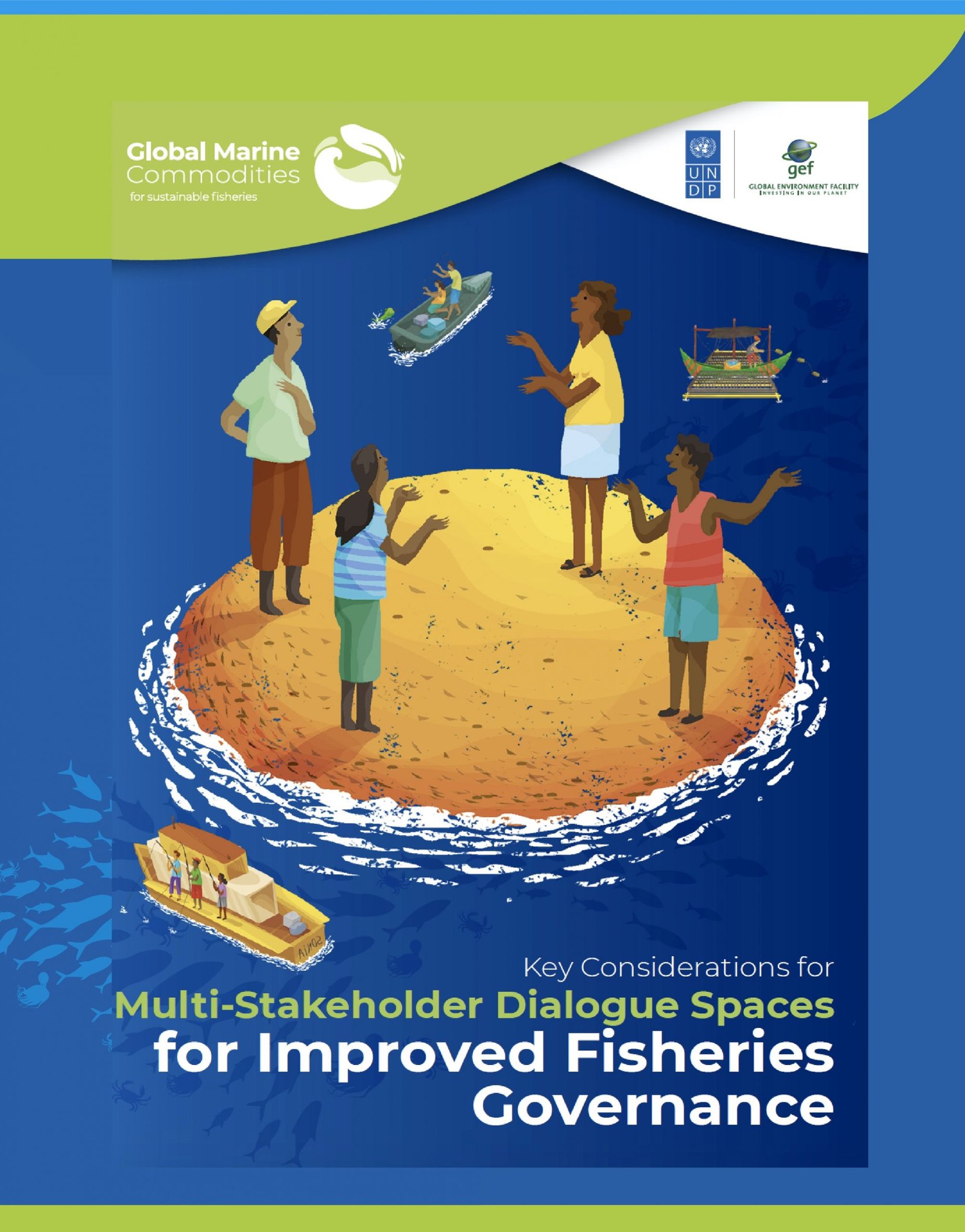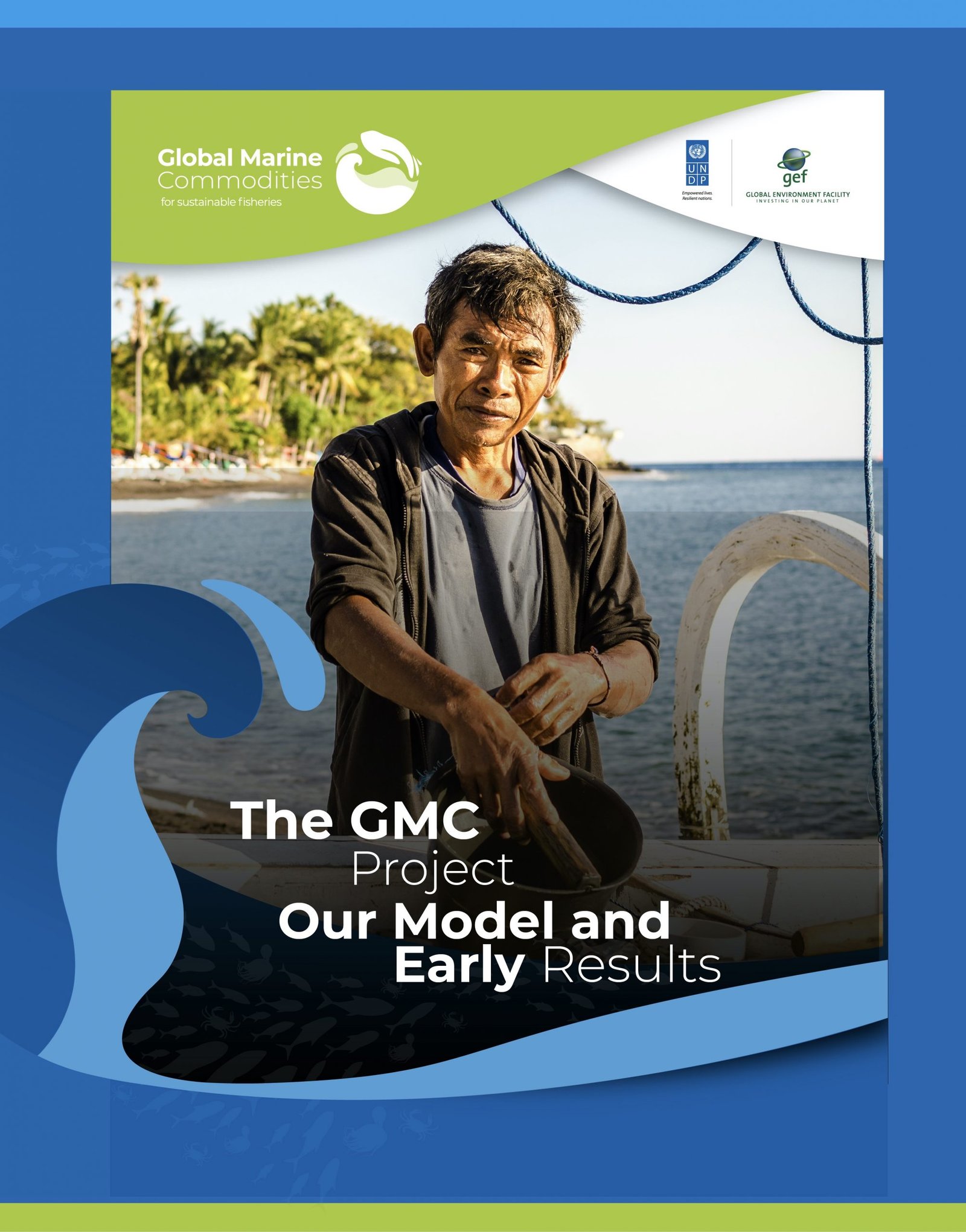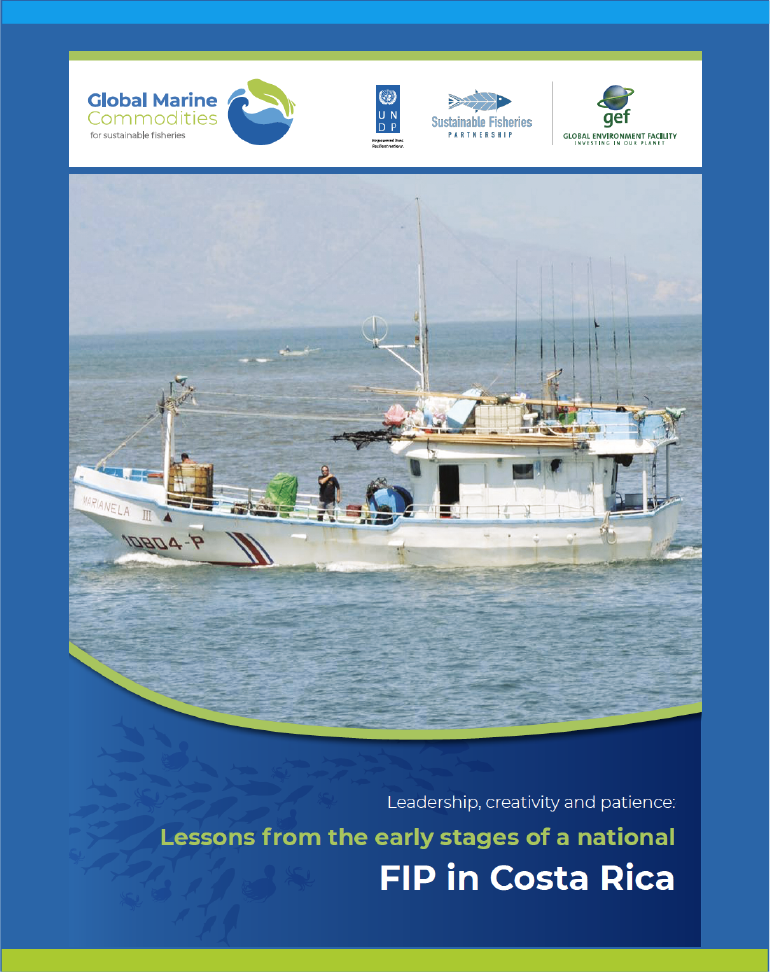Pertimbangan Pokok untuk Ruang Dialog Multi-Pemangku Kepentingan untuk Tata Kelola Perikanan yang Lebih Baik

Abstract:
The United Nations Development Programme (UNDP) is committed to enabling people to share their goals,needs and commitment to managing the use of natural resources (water, forests, soils, fisheries) in a way that meets global sustainable development goals. The UNDP has been facilitating dialogues between people involved in a variety of commodities such as coffee, oil palm, soy, beef and cocoa. The move into seafood enabled this approach to be applied to seeking solutions to the well documented issues associated with overfishing and the inequitable distribution of benefits from the use of fishery resources. As publicly owned resources, fisheries are more likely to be sustainable when stakeholders are actively involved in the management process. The Sustainable Marine Commodity Platform approach ensures that those in the wider supply chain, who also have an interest in sustainable use, are proactively included.Organization(s): UNDP | SFP
Publication year: 2020
Keywords:
Geographic keywords:
Language(s): English
How useful was this document?
Share:
Lessons Learned from the Indonesian Western and Central Pacific Yellowfin and Skipjack Tuna Pole and Line FIP


Abstract:
In 2017, the Indonesian Western and Central Pacific Yellowfin and Skipjack Tuna Pole and Line Fishery Improvement Project (Tuna PL FIP) was launched. Its purpose is to address overexploitation of marine fisheries by mainstreaming sustainability in the fisheries supply chain. Stakeholder in this ongoing Project include fishers who are members of the Indonesian Industry Association for Pole and Line and Handline Tuna Fisheries (AP2HI), the International Pole and Line Foundation (IPNLF), and the Ministry of Marine Affairs and Fisheries (MMAF). The Tuna PL FIP journey provides an opportunity for fisheries stakeholders to extract lessons learned and identify the potential for replication and scaling up. This document provides ten essential lessons for fishing communities, scientists, and development workers.Organization(s): UNDP | SFP
Publication year: 2020
Keywords:
Geographic keywords:
Language(s): English
How useful was this document?
Share:
Key Considerations for Multi-Stakeholder Dialogue Spaces for Improved Fisheries Governance


Abstract:
The United Nations Development Programme (UNDP) is committed to enabling people to share their goals,needs and commitment to managing the use of natural resources (water, forests, soils, fisheries) in a way that meets global sustainable development goals. The UNDP has been facilitating dialogues between people involved in a variety of commodities such as coffee, oil palm, soy, beef and cocoa. The move into seafood enabled this approach to be applied to seeking solutions to the well documented issues associated with overfishing and the inequitable distribution of benefits from the use of fishery resources. As publicly owned resources, fisheries are more likely to be sustainable when stakeholders are actively involved in the management process. The Sustainable Marine Commodity Platform approach ensures that those in the wider supply chain, who also have an interest in sustainable use, are proactively included.Organization(s): UNDP | SFP
Publication year: 2020
Keywords:
Geographic keywords:
Language(s): English
How useful was this document?
Share:
The GMC Project: Our Model and Early Results


Abstract:
After two years of implementation, the GMC Project shares its model and compelling results to promote sustainable fisheries for the Blue Economy. The project has facilitated new fisheries policy consultation forums in Costa Rica, Ecuador, and Indonesia and has strengthened the fisheries management Technical Working Groups in the Philippines. These forums have generated the Costa Rica Large Pelagic National Action Plan (NAP) and are currently building or updating another eight national action and management plans in the other three countries. Thanks to the GMC project partner Sustainable Fisheries Partnership (SFP), international seafood buyers and retailers are taking an active role in supporting sustainability improvements in the project’s target fisheries. In addition, by employing emerging market tools such as sustainable seafood purchasing policies, Supply Chain Roundtables with seafood importers, and 6 Fishery Improvement Projects (FIPs), SFP is also helping the private sector in both producing and consuming countries make direct contributions to the integration of sustainability into seafood supply chains.Organization(s): UNDP | SFP
Publication year: 2020
Keywords:
Geographic keywords:
Language(s): English
How useful was this document?
Share:
Lessons from the early stages of a national FIP in Costa Rica


Abstract:
The Costa Rican large pelagic fishery stakeholders have been working together in order to transform a small FIP initiative involving some actors in the supply chain into a national scale initiative involving all representatives from the producing sector. In efforts to expand the reach of its improvements, the newly launched national-level Longline and Green stick Large Pelagic FIP participated in the process of constructing the 20-year Large Pelagic National Action Plan and more recently collaborated with the Regional Committee of Mahi-mahi (COREMAHI). By engaging with COREMAHI, the FIP aims to identify common needs with their mahi-mahi producing peers in Ecuador and Peru and together lobby their national representatives to achieve the needed policy changes at regional level for the sound management of mahi stocks. This document summarizes the principal lessons learned discussed by a group of panelists involved in the formulation of the Costa Rica Large Pelagic Longline and Green Stick FIP.Organization(s): UNDP
Publication year: 2020
Keywords:
Geographic keywords:
Language(s): English
How useful was this document?
Share:

 (15 votes, average: 4.80 of 5)
(15 votes, average: 4.80 of 5)